How to See the Liberty Bell...in Queens
A copy of the famous American bell can be found inside a bank, which itself is modeled after Independence Hall!


This is exactly what China’s provocative contemporary artist Ai Wei Wei strives to do through his work: use art to speak about many social and cultural concerns. His survey exhibition, According to What? is on view at the Smithsonian Hirshhorn Museum in Washington D.C. showcasing a wide range of conceptual sculptures, installations, photography, audio, and video.
As you ride up the escalator to the exhibition, you are welcomed by Ai Wei Wei’s commemoratory installations for the 5,000+ students who passed away during the Sichuan Earthquake due to the poorly built schools. The Names of the Student Earthquake Victims Found by the Citizens’ Investigation (2008 – 2011) is a wall with the young victims’ written names, ages and schools listed while simultaneously Remembrance (2010), an audio recording of their names are spoken aloud. These powerful installations are accompanied by a piece called Snake Ceiling (2009). It is a chain of various sized backpacks linked together creating a pattern of a serpent, symbolizing the different ages of the children from the Sichuan tragedy.
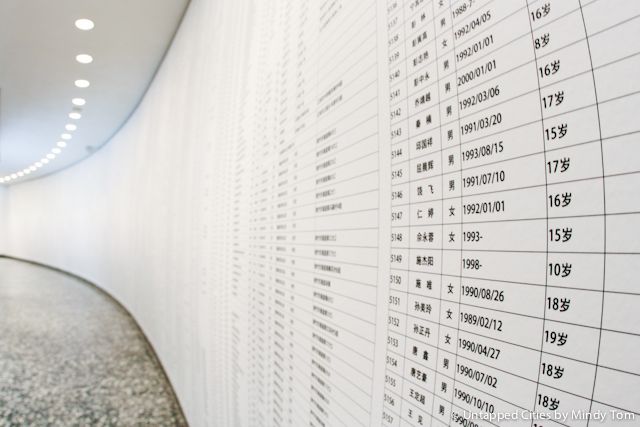
Names of the Student Earthquake Victims Found by the Citizens’ Investigation, 2008 – 2011
These are only a few of the many pieces in the exhibition. Following is a series of documentation of the construction from the 2008 Beijing Olympic National Stadium, a collaboration between Ai Wei Wei and architects Herzog & de Meuron. As you continue, Moon Chest is an installation of wooden structures that you can observe from different angles, creating numerous patterns. Along the walls are series of photos taken while Ai Wei Wei was living in New York City between the 80’s and early 90’s. These photos show a more personal side of the artist outside the studio, of his daily lifestyle, activities, and the people he encountered.
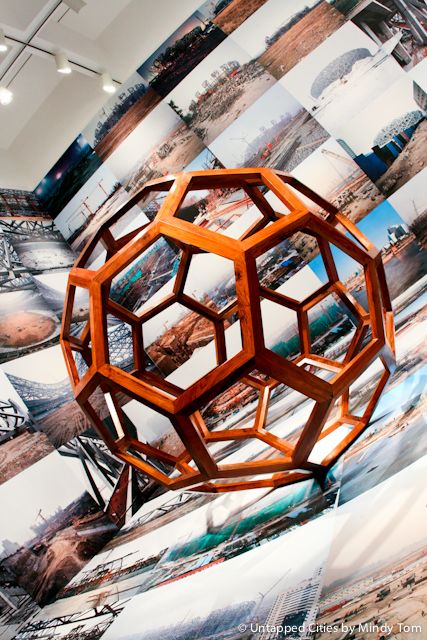
Divina Proportione, 2006
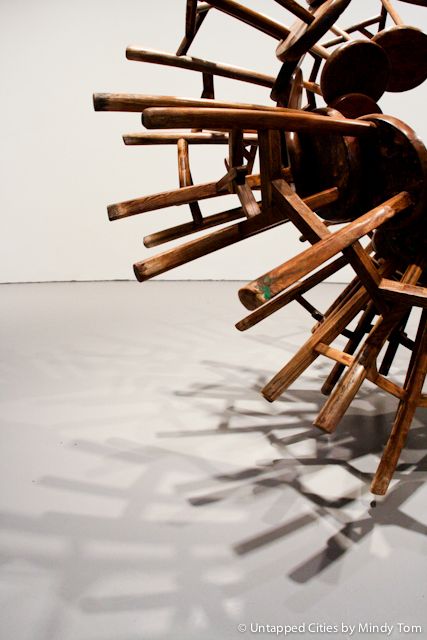
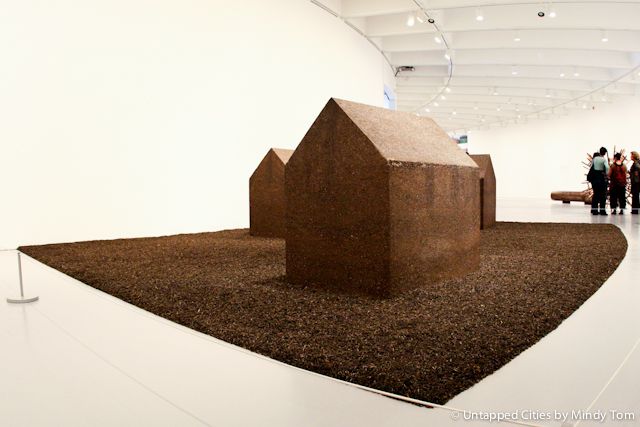 Teehaus, 2010
Teehaus, 2010
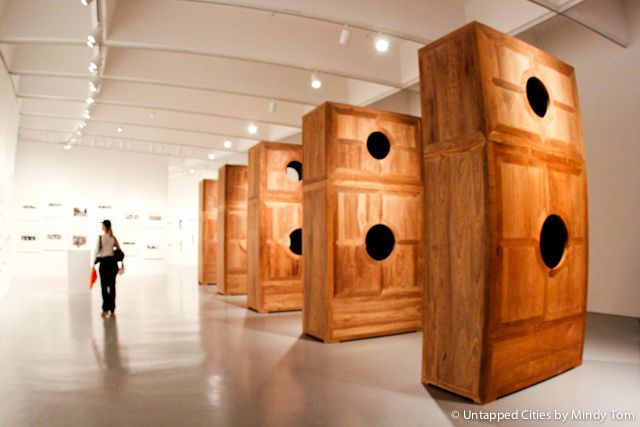 New York Photographs, 1983 ”” 1993; Moon Chest, 2008
New York Photographs, 1983 ”” 1993; Moon Chest, 2008
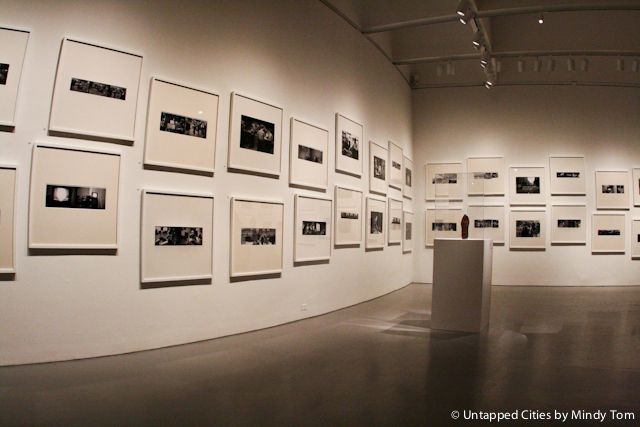 New York Photographs, 1983 ”” 1993
New York Photographs, 1983 ”” 1993
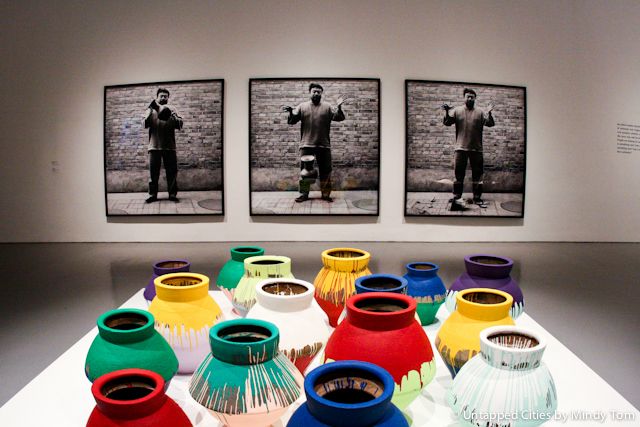 Dropping a Han Dynasty Urn, 1995/2009; Colored Vases, 2007 – 2010 (top to bottom)
Dropping a Han Dynasty Urn, 1995/2009; Colored Vases, 2007 – 2010 (top to bottom)
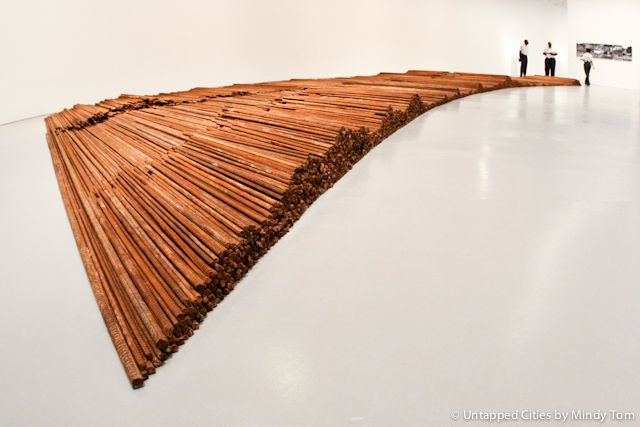 Straight, 2008 ”” 2012
Straight, 2008 ”” 2012
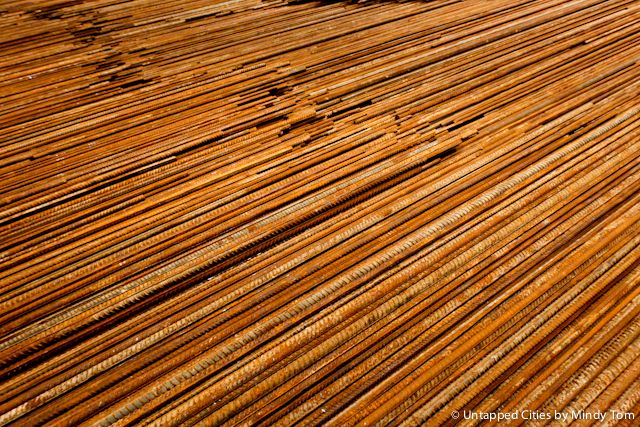 Straight, 2008 ”” 2012 (detail)
Straight, 2008 ”” 2012 (detail)
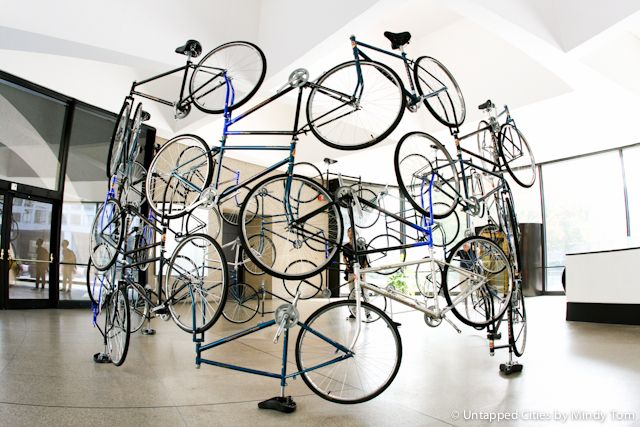 Forever, 2003
Forever, 2003
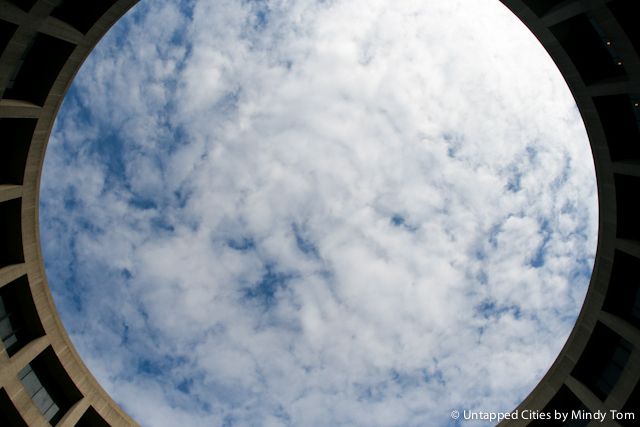 View looking up from Sculpture Garden
View looking up from Sculpture Garden
After viewing the entire exhibition, you will understand Ai Wei Wei’s message and also begin to question…”˜according to what?’
“I make the useful become not useful; these objects combine the practical with change and illusion. They open up a perspective so that we can have an understanding of the material or an understanding of space. It is a basis for dealing with perception, and when you think about how people use an object, you’re also using so-called knowledge in the sense that ”˜useful’ has a meaning. The meaning is the use. And that plays a great rile in human understanding and culture.” ”” Ai Wei Wei
For more information:
Ai Wei Wei: According to What?
Smithsonian Hirshhorn Museum and Sculpture Garden
700 Independence Avenue Southwest
Washington, DC 20560
(202) 633-4674
On view from October 7th ”” February 24th, 2013
Admission is free
Subscribe to our newsletter